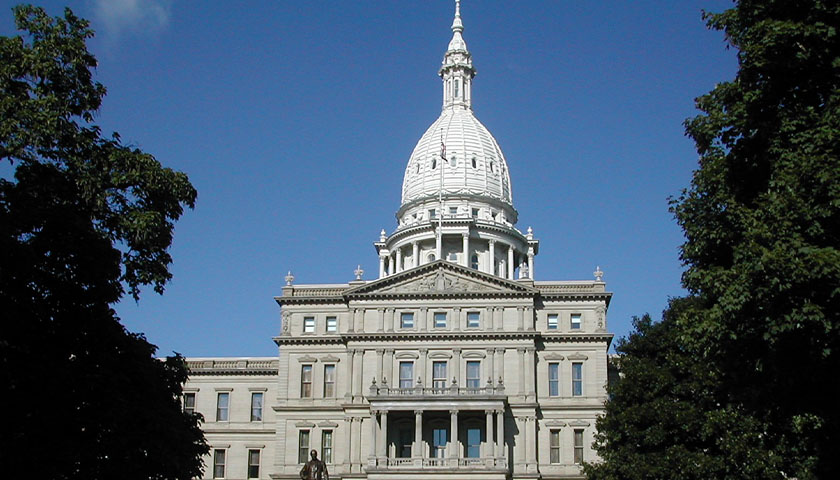by Scott McClallen
Michigan budget officials Friday reached a consensus on revised economic and revenue figures for fiscal years 2021, 2022 and 2023.
The state general fund and school aid revenues will total $26.5 billion for the current budget year, exceeding January estimates by $2.2 billion. For the new budget cycle beginning Oct. 1, the agency projected revenues will total $26.6 billion, $1.3 billion more than January predictions.
A majority of that unexpected cash is a byproduct of billions of spending via stimulus checks and boosted unemployment benefits, which led to a spike in personal spending and increased state tax revenues by billions more than previously forecast.
“The federal stimulus programs have continued to benefit our economy, producing a tremendous boost to our state’s future economic outlook and revenue picture,” State Treasurer Rachael Eubanks said in a statement. “Public health and the economy go together – the better the health situation the better the economy. As our vaccination rate continues to rise and our cases continue to fall, we are moving closer to normalcy. There is a great sense of optimism as we move forward this year.”
These revenue estimates are based on the most recent economic projections and forecasting models. Potential risks to the estimates agreed to include COVID-19 outbreaks, national economic trends, and international economic issues.
“Michigan has effectively managed its way through the pandemic and as we now begin to emerge from the darkest days of the public health crisis, we are seeing a very positive revenue picture that gives us the opportunity to make some transformational investments in our state,” State Budget Director David Massaron said in a statement.
“With the amount of revenue now available to us, this is a once in a generation opportunity to make significant investments in our future and we need to make sure we get this budget right so we can enable Michigan to thrive in the years to come.”
Fiscal year 2022 spans from Oct. 1, 2021, to Sept. 30, 2022, while fiscal year 2023 spans from Oct. 1, 2022, to Sept. 30, 2023.
Chair of the Michigan House Appropriations Committee, Rep. Thomas Albert, R-Lowell, warned billions of spending artificially inflated the projection.
“While revenue projections are higher than previously anticipated, it does not change the fundamental reality that our state budget and economy are artificially propped up by federal COVID relief funds,” Lowell said in a statement. “State revenues are good; however, we are down over 300,000 jobs from pre-pandemic levels and still have 812,000 people with active unemployment claims.”
Since 2020, Albert said the federal money supply has increased 29% and its debt by 20%, which very well could lead to inflation. He pushed to spend federal stimulus money on “one-time investments.”
Mark Greathead, President of the K-12 Alliance of Michigan, said lawmakers should spend the windfall on schools.
“Based on today’s budget estimates in Lansing, it’s clear now is the time to make a generational shift in the way schools are funded,” Greathead said in a statement. “We have the opportunity to finally fulfill the decade-long promise of no longer balancing budgets on the backs of Michigan’s children by moving higher education funding out of the School Aid Fund once and for all.”
– – –
Scott McClallen is a staff writer covering Michigan and Minnesota for The Center Square. A graduate of Hillsdale College, his work has appeared on Forbes.com and FEE.org. Previously, he worked as a financial analyst at Pepsi.
Photo “Michigan State Capitol” by Brian Charles Watson CC 3.0.





